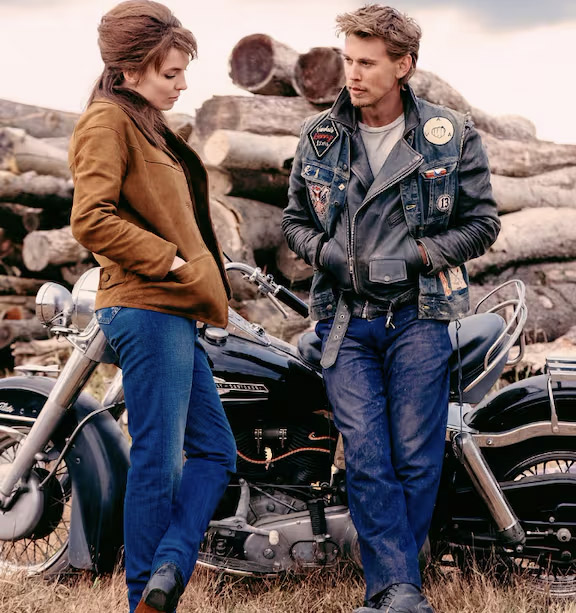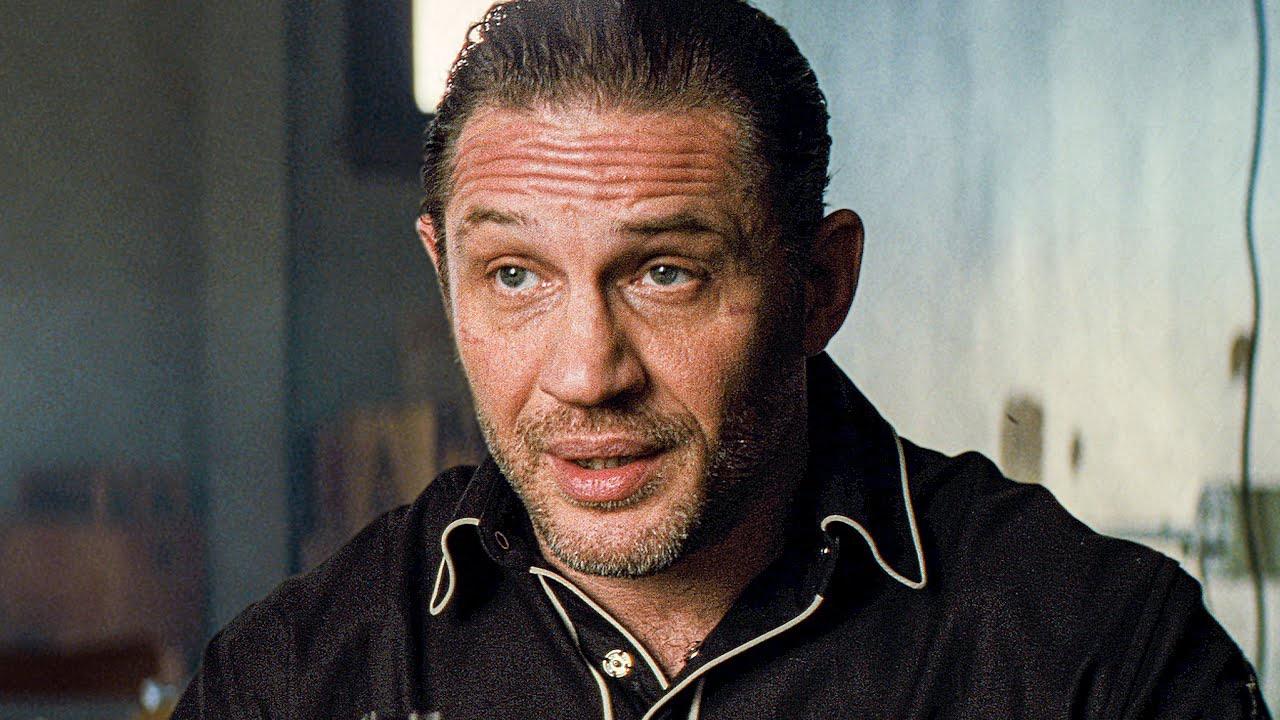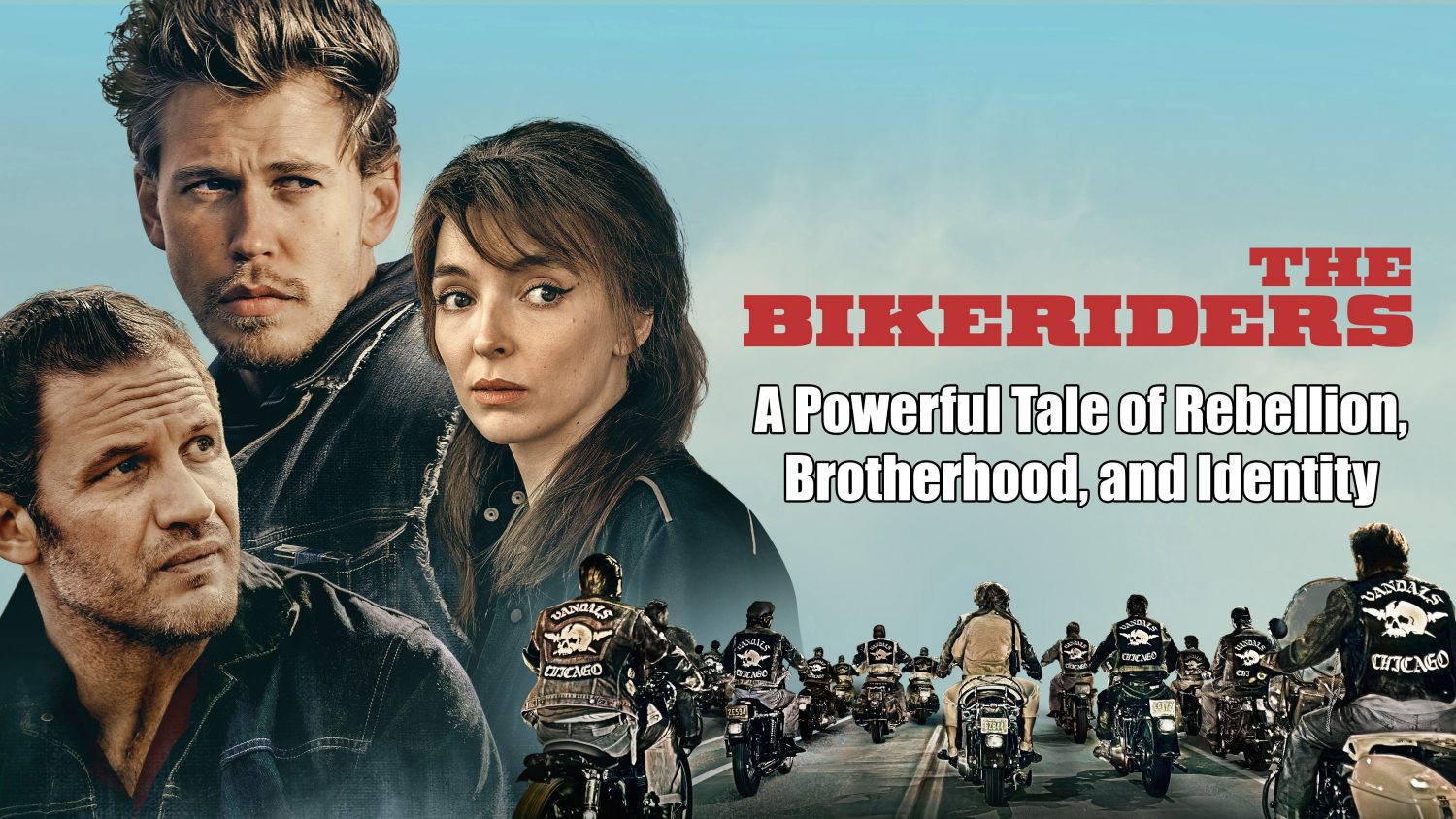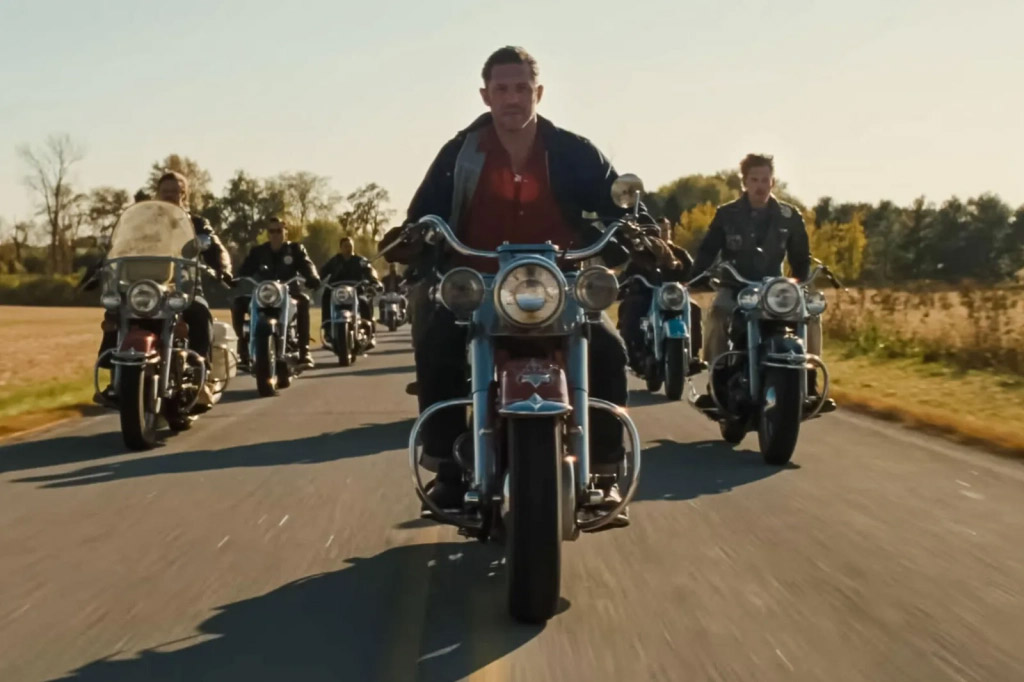The Bikeriders, directed by Jeff Nichols, is a gripping exploration of the motorcycle club culture in the 1960s, a world that has often been romanticized and misunderstood. Inspired by Danny Lyon’s 1968 book of photography, the film plunges into the raw, untamed energy of an era defined by countercultural movements, where freedom came with both exhilaration and risk. Nichols, known for his deep, character-driven narratives, delivers a movie that is not only visually striking but also rich in emotion, character development, and social commentary.
This film isn’t just a “biker movie” in the conventional sense—it’s a story about identity, belonging, and the fight for autonomy in a society that thrives on conformity. As viewers, we are pulled into the tension between the desire for absolute freedom and the cost that such freedom demands.
A World of Complexity: Freedom and Consequences
 The movie centers around the Vandals, a Midwestern motorcycle club led by Johnny (Tom Hardy), a charismatic and unpredictable figure. Johnny’s vision of the Vandals is that of a brotherhood—free from societal rules and constraints, yet loyal to one another. As the club grows and becomes more violent, this vision is tested, both from external pressures like law enforcement and internal conflicts.
The movie centers around the Vandals, a Midwestern motorcycle club led by Johnny (Tom Hardy), a charismatic and unpredictable figure. Johnny’s vision of the Vandals is that of a brotherhood—free from societal rules and constraints, yet loyal to one another. As the club grows and becomes more violent, this vision is tested, both from external pressures like law enforcement and internal conflicts.
The narrative unfolds through the perspective of Kathy (Jodie Comer), the wife of one of the club’s key members, Benny (Austin Butler). Kathy is an essential voice in the film, as her relationship with Benny serves as a lens through which the viewer experiences the tension between the liberating aspects of the biker lifestyle and its darker, more dangerous consequences.
In this world, the bikers are both heroes and anti-heroes—flawed, rough around the edges, yet undeniably compelling. They reject the status quo and live by their own rules, but the very rebellion that sets them apart also drives them into increasingly destructive behavior. This dynamic is especially apparent in Johnny, whose unpredictable nature and unchecked aggression begin to strain the brotherhood he’s worked so hard to build.
A Story of Belonging and Identity
One of the most compelling aspects of The Bikeriders is how it explores the need for belonging. In the 1960s, motorcycle clubs offered a sense of community to those who felt marginalized or alienated from mainstream society. These clubs, while often characterized by their lawlessness, provided structure, purpose, and identity.
For Johnny and his crew, riding isn’t just about the thrill of the open road—it’s about forging a collective identity in opposition to societal norms. The Vandals live by their own moral code, one that values loyalty and freedom above all else. Yet, as the movie progresses, we see how this pursuit of freedom can come at a steep price. The club’s internal politics, increasing violence, and run-ins with law enforcement threaten to tear apart the very bonds that hold the group together.
Kathy’s character provides a unique counterbalance to this. As the spouse of a club member, she is simultaneously an insider and an outsider. Her relationship with Benny serves as a grounding force amidst the chaos of the biker world, but it also highlights the emotional cost of living on the fringes of society. Kathy is both fascinated by and afraid of the life that Benny has chosen, a conflict that gives the movie much of its emotional weight.
The Beauty and Brutality of Biker Culture
 Visually, The Bikeriders is stunning. Cinematographer Adam Stone captures the beauty of the American Midwest, with wide shots of endless highways, sunsets, and landscapes that symbolize the vast, untamed freedom the bikers yearn for. At the same time, Nichols doesn’t shy away from the violence and brutality that often comes with this freedom. Bar fights, police chases, and internal club disputes are shot with a raw intensity that keeps the audience on edge.
Visually, The Bikeriders is stunning. Cinematographer Adam Stone captures the beauty of the American Midwest, with wide shots of endless highways, sunsets, and landscapes that symbolize the vast, untamed freedom the bikers yearn for. At the same time, Nichols doesn’t shy away from the violence and brutality that often comes with this freedom. Bar fights, police chases, and internal club disputes are shot with a raw intensity that keeps the audience on edge.
This balance between beauty and brutality is a central theme in the film. It reflects the duality of the biker lifestyle itself—on one hand, it’s about independence, camaraderie, and the open road; on the other hand, it’s about chaos, unpredictability, and the ever-present threat of violence. The film refuses to romanticize this world, instead offering a balanced portrayal that allows viewers to appreciate both its allure and its dangers.
Themes of Power and Control
Throughout the film, issues of power and control are ever-present. Johnny’s leadership is both his greatest asset and his greatest weakness. He embodies the ideal of the strong, independent leader, but his refusal to compromise or show vulnerability ultimately drives him to make decisions that alienate those closest to him. This is a story about how power, when unchecked, can become corrosive.
At the same time, the film raises important questions about control in the context of personal freedom. The Vandals seek to control their own destinies by rejecting societal norms and embracing an outlaw lifestyle, but in doing so, they often find themselves at odds with each other. The tension between individual autonomy and collective responsibility is palpable throughout the movie, adding a layer of complexity to the otherwise straightforward narrative of rebellion.
A Reflection on Today
While The Bikeriders is set in the 1960s, its themes resonate strongly with contemporary audiences. The tension between individual freedom and societal expectations is perhaps more relevant today than ever. In a world where many feel alienated by political, economic, and social systems, the desire to break free and forge one’s own path is a powerful impulse.
The film also touches on the fragility of community. In an era where polarization often drives people apart, The Bikeriders reminds us of the importance of belonging—but also of the dangers of blind loyalty. The Vandals, for all their virtues, fall victim to the very things that give them strength: their desire for freedom, their rejection of compromise, and their fierce sense of independence.
A Gritty, Thought-Provoking Journey
The Bikeriders is more than just a movie about motorcycles and the outlaw lifestyle. It’s a film that delves deep into the human desire for freedom, the need for belonging, and the consequences of rebellion. Jeff Nichols has crafted a story that is both intimate and epic, capturing the raw energy of biker culture while exploring the emotional and psychological complexities that come with it.
For fans of the genre, The Bikeriders will undoubtedly satisfy. Its performances—particularly by Tom Hardy, Jodie Comer, and Austin Butler—are captivating, and the cinematography is breathtaking. But beyond the action and aesthetic, this is a movie that asks big questions about power, identity, and what it means to truly be free. It’s a film that lingers in your mind long after the credits roll, leaving you to ponder the price of rebellion and the fragile nature of brotherhood.
Whether you’re a biker or simply someone who appreciates a well-crafted, thought-provoking film, The Bikeriders offers a raw, emotional ride that is not to be missed.

![The Bikeriders (4K Ultra HD + Blu-ray + Digital) [4K UHD]](https://m.media-amazon.com/images/I/51BbXoG6SmL._SS520_.jpg)






